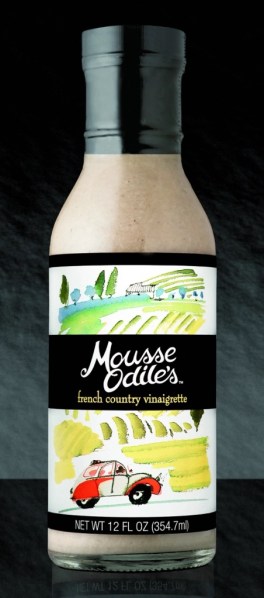Full Belly Files | Is French Onion Dip My Family Dish?
This edition of Full Belly Files was originally emailed to subscribers on December 2, 2022. To receive Matt Kettmann’s food newsletter in your inbox each Friday, sign up at independent.com/newsletters.

Last month, my son’s Spanish teacher at La Colina Junior High celebrated Día de los Muertos by inviting all of the students to bring one of their family’s special dishes to class. To my ears, that meant something that was both relatively unique to one’s heritage and yet consumed with at least an annual frequency. That presented a bit of a quandary for us.
My wife’s Jewish heritage provided a few legitimate options. We could have gone with bagels or brisket — though both are pretty commonplace these days — as well as latkes, which do remain special enough to Jewish traditions and are heartily enjoyed on our table during Hanukkah. But they’re not great served cold, as they would be during school, so we didn’t go that route.
My Irish heritage opened only one door: corned beef and cabbage, which I grew up eating once a year — yep, St. Patrick’s Day, with my green milk. Though I love the dish, I’ve never really made it for my kids, so that didn’t seem to qualify either. Coming from families that settled in California more than 150 years ago, the rest of the foods I ate growing up were pretty standard American fare, having thoroughly endured the assimilation wash cycle: grilled meats, various salads, pastas, and so on — nothing too special or even typical enough to claim as our own.
Then my son asked my mom, and she replied, “French onion dip.” Like you, I considered the idea ridiculous at first. How could a packaged powder added to sour cream and served with potato chips (Ruffles!) qualify as a special family dish?
Then I got to thinking: French onion dip was on almost every table I can remember growing up. It was there on Christmas, on Thanksgiving, on Fourth of July, on Easter, at birthday parties, at backyard barbecues, at funerals, and just on random weekdays at grandma’s house. It’s still craved by most of my relatives with the same addictive abandon that first hooked me as a kid, and it’s one of the few things that rarely makes it back to the fridge as leftovers. (Unless you make a big batch to last for a couple of days, which my family tends to do.) It’s basically a food group for us, and my wife also started making it in our house a few years ago.

I did a little research — first via Wikipedia, and then into that page’s sources. Sure enough, the story aligned with my family’s Golden State roots. Invented by an unknown Los Angeles chef in 1954 who paired Lipton’s dried soup mix with sour cream (or cream cheese), the concoction was originally called “California Dip” when Lipton promoted it nationally via television and print advertising. The “French onion dip” resurfaced in the 1960s, and this chart (amazing, but why does it exist?) shows how the “California Dip” name faded by the 1990s.
Nomenclature aside, I feel like there’s a deeper story. French onion dip was born out of the World War II baby boom, when modernity demanded ease in the kitchen and corporations provided such solutions in powder-filled bags. French onion dip perfectly symbolizes the era when older, homemade American traditions — many of those tied to our emigrant foodways, for instance — were traded for a factory-powered, mass-market culture, which my family and millions of others readily embraced.
We must have lost a lot in that transition from great-great-grandma’s beef stew to Stouffer’s Stovetop Stuffing. (Very relevant tangent: Stouffer’s Stovetop Stuffing never actually existed, meaning that I’m a victim of the Mandela Effect on that one.)
I’m happy to cook a wide range of globally inspired foods for my family today, but I very much lament not having a treasure trove of dusty recipes passed through the ages. And, yes, I recall a cookie session or two with my great-grandma and plenty of times watching my dad tame a charcoal fire. But I don’t have memories that so many others cherish of their aunt hounding over the stove to prepare a famous goulash or grandpa tending to deep pit beef.
Certainly, I’m not going hungry. In the meantime, we’re in an age of elevating nostalgia, from cheffy takes on mac ’n’ cheese to haute smashburgers to using deductive reasoning to re-create Taco Bell’s Mexican pizza. French onion dip fits right in.
How’d it go in my son’s class, you wonder? Maestra Girafa loved it.
Sign up to get Matt Kettmann’s Full Belly Files, which serves up multiple courses of food & drink coverage every Friday, going off-menu from our regularly published content to deliver tasty nuggets of restaurant, recipe, and refreshment wisdom to your inbox
Mousse Odile Photos?
Kelly Frazier is a designer helping Black Sheep return to the restaurant game with a new spot at 18 East Cota Street, which was once home to the famed French restaurant Mousse Odile. (Among other legacies, the spot spawned a very popular salad dressing, which songwriter Cyrus Clarke recalled in this ode from 2020.) She’s searching for historical photos of the old spot to decorate the new interior, so shoot me an email if you have any leads.

From Our Table
Here are a bunch of articles that you may have missed from November:

- Vanessa Vin went to the new Good Land Wine Shop and filed this report.
- Our new food intern Sasha Senal wrote two pieces in the past week: the first was about Santa Barbara County’s first mobile farmers’ market, based in Lompoc; the second was on a new spot that looks like a lot of tasty fun called Menchaca Chocolates.
- Though it doesn’t quite qualify as a Full Belly Files story, I never called out this cover-story Q&A I did with UCSB’s Professor Peter Alagona on urban wildlife.
- Only tangentially food and drink related, I also wrote about the 11th anniversary of Jump on the School Bus.
- And this week, I finally got around to publishing my piece on Ysidro, a sake-based spritz that is refreshing the hard seltzer game.
Support the Santa Barbara Independent through a long-term or a single contribution.




You must be logged in to post a comment.